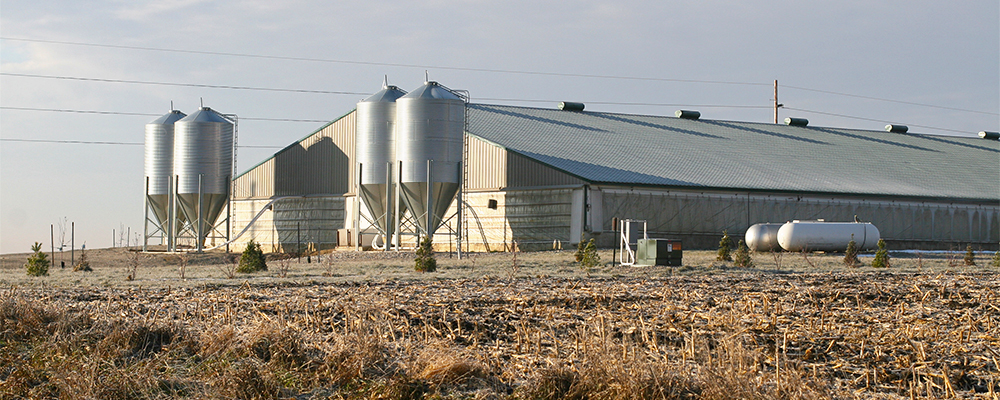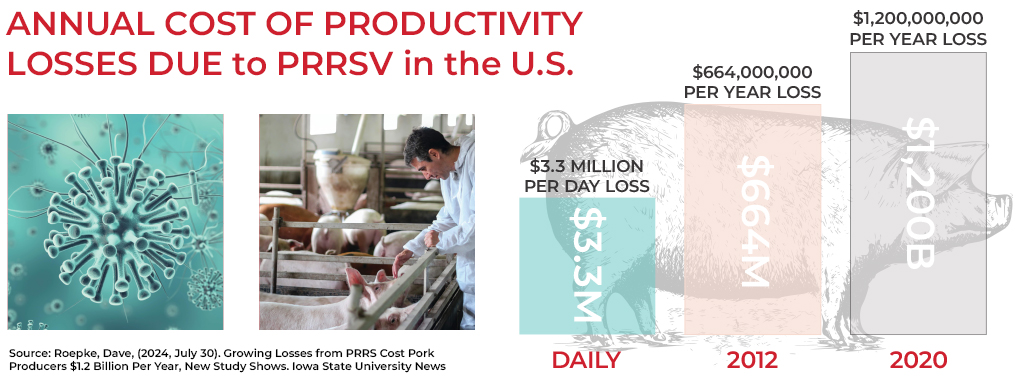


Comprehensive, independent AAF-Sponsored 16-year analysis makes the strong business case for using filtration in sow farms to prevent PRRSV
A groundbreaking study from the University of Minnesota Department of Veterinary Population Medicine, has revealed that air filtration systems can dramatically reduce the occurrence of porcine reproductive and respiratory syndrome virus (PRRSV) in U.S. swine operations. The initial research results were announced at the World Pork Expo 2025 in Des Moines.
A comprehensive longitudinal study analyzed 15 years of data from 413 sow farms participating in the University’s Morrison Swine Health Monitoring Project, spanning the period from 2009 to 2024. The research represents nearly one million sows and, for the first time, presents a solid financial business case for using air filtration to help reduce instances of PRRSV.

Key Findings:
The study found that farms with commercial air filtration systems experienced significantly lower PRRSV outbreak rates compared to unfiltered operations:
Study Methodology:
The research, led by Dr. Xiaomei Yue, postdoctoral associate with the Morrison Swine Health Monitoring Project, analyzed breeding herd data from 413 sow farms, including 238 unfiltered operations, 128 farms with negative pressure filtration, and 47 with positive pressure filtration systems. Researchers calculated total new PRRSV outbreaks and weeks at risk for each farm based on air filtration status, while accounting for herd size and the number of farms within a 35-kilometer radius.
Using Generalized Additive Mixed Models (GAMM), the study provided robust statistical evidence while controlling regional pig density and comparing filtered versus unfiltered farms within the same geographic areas.
The findings offer valuable data for swine producers considering air filtration investments. “A single PRRS outbreak can devastate a farm financially, so this research gives producers evidence-based guidance for implementing air filtration strategies to protect their operations from PRRS,” comments Dr. Yue.
"PRRSV continues to pose significant challenges to the U.S. swine industry," said Dr. Cesar Corzo, DVM, MS, PhD, University of Minnesota. "While air filtration methods combined with biosecurity measures have demonstrated effectiveness in preventing PRRSV introductions, this study is the first to comprehensively address the impact of different ventilation pressure types while controlling for factors such as spatial clustering and regional pig density."
Conclusion
For the first time ever, sow farmers can now make a concrete business case for investing in air filtration technology. In this study, filtration did an excellent job at preventing PRRSV outbreaks, which is just as much about biosecurity as it is about protecting their businesses.
To access the complete study findings and methodology, contact us to request the abstract summary (please request specifically in the ‘message’). Or, if you would like to discuss how air filtration solutions can protect your herd and bottom line, click here